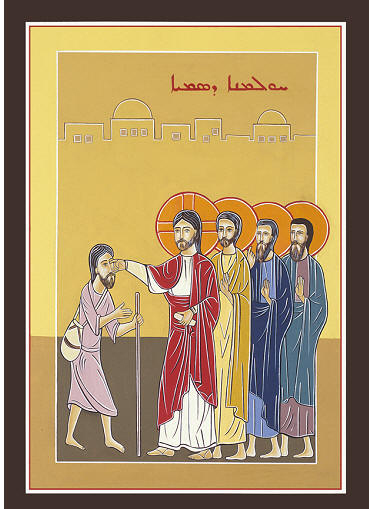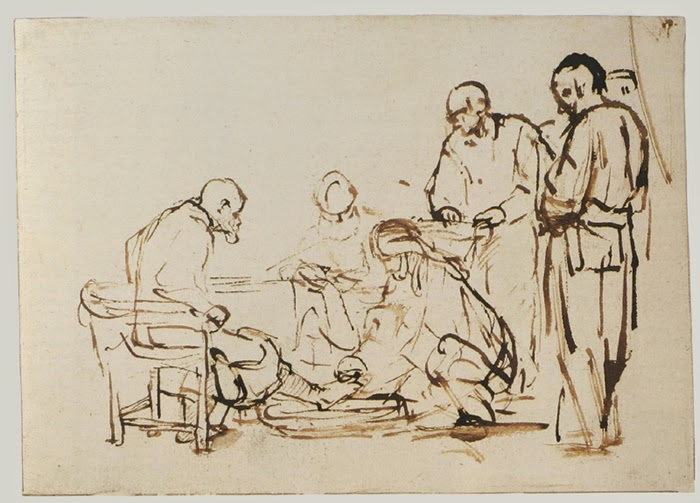Ours is a world which is characterised by FEAR: it is everywhere. We are afraid concerning Britain’s exit from the European Union, how our climate will change in the future, at the state of global politics and whether there will be another World War, a nuclear cataclysm, or a global pandemic. In short we know that all is not right with the world. We’re not entirely sure what to do about it, but we know that something is wrong.
This situation is not unlike that faced by the people of Israel in exile, as addressed by the prophet Jeremiah. They have turned away from the Lord, and worshipped false gods and seen their land destroyed and captured, and been driven into exile in Babylon. And yet there is hope. God has not abandoned his people, but gives them a promise of healing, and of a bright future. The people will return weeping, sorry for their sins, and looking for God’s compassion and forgiveness. As then, so now. At this time of year we give thanks to God for another harvest being safely gathered in, we give thanks for all those who work, so that we might have food to eat, and things to drink. We also need to say sorry for the way in which we treat God’s Creation, the world in which we live: that we are not always good stewards, that we pollute the world, that we live in a world which produces enough food and yet people are hungry. We need to share what we have, so that all may be fed. This is how God wants us to live, and the greatest harvest we can offer is the harvest of our souls living lives of love, kindness and generosity.
On the way out of Jericho in the Gospel this morning we have a deeply instructive picture. Bartimaeus is sitting by the roadside, a blind beggar, unable to work, a man who has to rely upon the charity of others to live. He hears a commotion, and asks who is coming by. He is told that it is Jesus of Nazareth, so he cries out, ‘Jesus, Son of David, have mercy on me!’ In his words he does two things: he recognises who Jesus is, that Jesus is the Messiah, the one who will save Israel, the one spoken of by the prophets; and he asks for mercy, for God’s forgiveness and compassion. The people around him tell him to be quiet, he’s an embarrassment, he’s making a fuss! But he cries out all the more, he won’t be silent, he is not afraid to make a scene. Jesus asks them to call him. At which point the attitude of the crowd changes, and they tell Bartimaeus, ‘Cheer up, Get up, he’s calling you.’ Jesus asks Bartimaeus, ‘What do you want me to do for you?’ He asks to recover his sight, so Jesus says, ‘Go on your way, your faith has made you well.’ His sight is restored, and Bartimaeus follows Jesus along the road.
The first followers of Jesus were known as followers of the Way, (Acts 9:2) and this is what Bartimaeus becomes: he follows him on the way, both literally and metaphorically. He trusts Jesus, he has faith in Him, and he follows Him. In Mark’s Gospel the story of Bartimaeus acts as a bridge between the teaching and miracles of Jesus’ ministry in Galilee and his time in Jerusalem which leads up to His death. He will enter Jerusalem on a donkey, as the Messiah, and will teach the people of Jerusalem how to follow God, fulfilling the hope and expectation of the prophets. Bartimaeus has faith which allows him to see, whereas the people of Jerusalem cannot see that Jesus is the Messiah, they are blind, whereas Bartimaeus can see, and follows Jesus on the Way.
It is a way which will lead to Jesus’ death on the Cross, where He offers Himself as a sacrifice for the sins of the whole world. It is through this that God’s promise of healing first made through the prophets can be put into effect. Because God has done this we can be healed and restored, and we are able to say, ‘sorry’ and ‘thank you’. We are able to celebrate a harvest, knowing that the greatest harvest we can offer God is the harvest of souls, like Bartimaeus, who have faith, and who follow Jesus on the Way.
We all long to be on the path that leads to God, a God who saves us, who loves us, who heals and restores us. As it says in John’s Gospel ‘I am the light of the world, whoever follows me will not walk in darkness but will have the light of life.’ If we walk with the eyes of faith we will be on a straight path, to the one who heals and restores humanity.
All the world needs to cry, ‘Jesus, son of God have mercy on me’. We need to know our need of God, we need to be healed and restored by him, like Bartimaeus. The world needs this to be fully alive in God, to turn away from sin and the ways of the world: living for others rather than ourselves, loving God and our neighbour. We should remember what Jesus said earlier in Mark’s Gospel (Mk 2:17) ‘Those who are well have no need of a physician, but those who are sick. I came not to call the righteous, but sinners.’ Christ came on our behalf, to bind up our wounds, to call us to follow Him.
The sin which mars God’s image in us, which separates us from God, which stops us from being what we can be, is borne by Jesus on the Cross. He binds our wounds by bearing the mark of nails, he heals us with the stream of his blood which flows on Calvary. By his stripes we are healed. We are healed by him so that we may see clearly and travel along the path of faith. It is a straight path on which we should not stumble, journeying with our wounded healer, to live out our faith in our lives as those healed and called by Christ and made part of his body, the church, healed by his sacraments, fed by his word and his Body and Blood, to be strengthened on our journey of faith, it is why we are here today, to be fed by him and with him, that our wounds may be healed.
We are all of us sinners in need of the love and mercy of him who bled for us on Calvary and who rose again for us, that we might share new life in him. Let us be fed by him, restored and healed by him, to have life in all its fullness. For we follow the one who heals us not out of blind obedience or fear but through joy, the joy of being free and truly alive in Christ. So let us live that life and give glory to God the Father, God the Son, and God the Holy Ghost, to whom be ascribed as is most right and just, all might, majesty, glory dominion, and power, now and forever.



